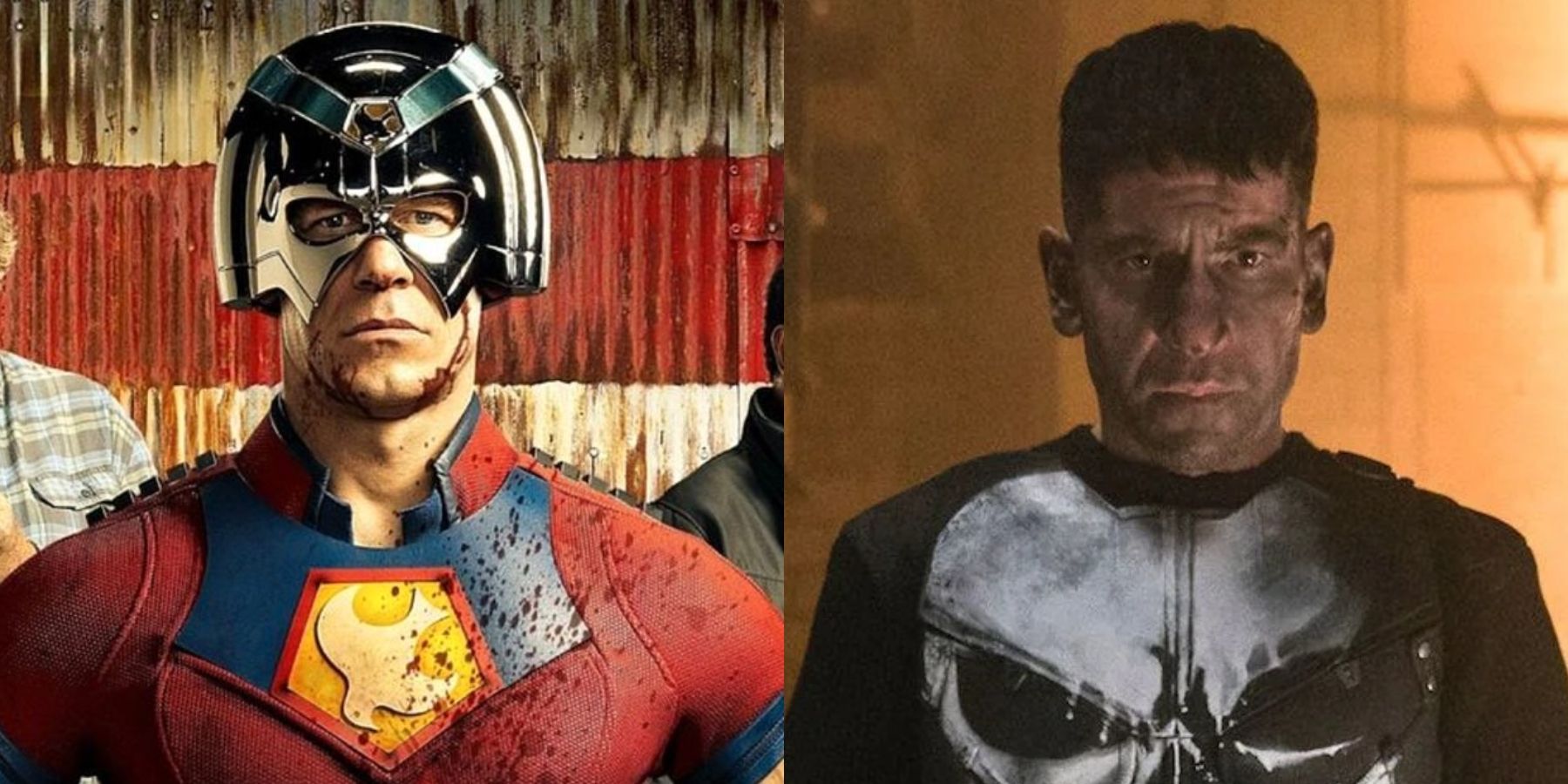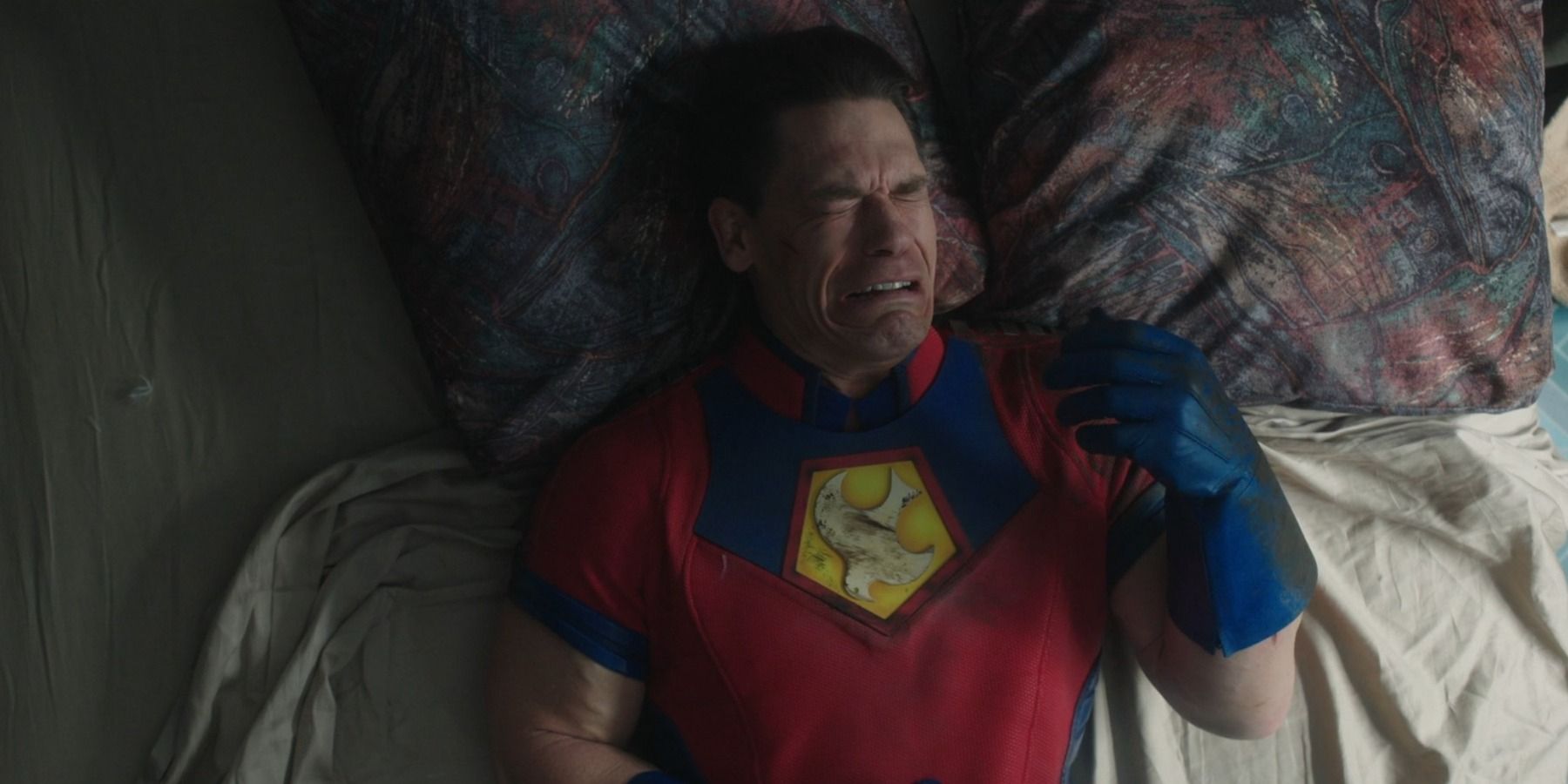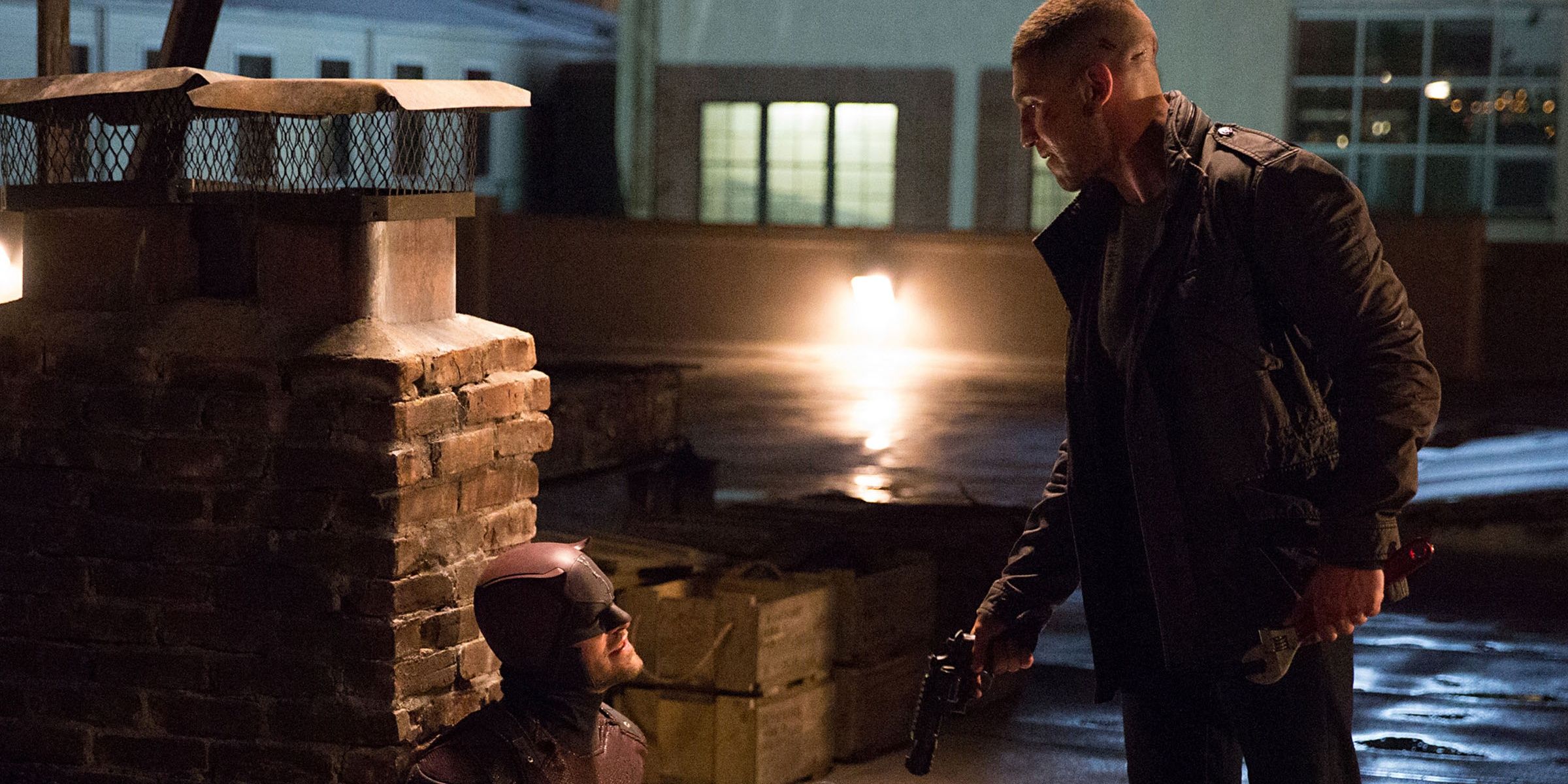Superheroes come with a wide variety of gimmicks and with every different hero comes a different way they get their job done. One particular binary has been a fundamental question for a huge percentage of media in the genre for decades, and it's time to wonder whether it's outlived its usefulness.
Though he wasn't the first costumed superhero, Superman is the one who popularized the genre and remains the standard by which most are judged. Though most are aware that The Man of Steel holds a moral code against killing his enemies, that wasn't always the case. The origin of that decision came from the 1940s Comics Code Authorities' strictly enforced restraint on violence. Before that moment, Superman regularly killed criminals and foreign militants without issue, and no one seemed to think any less of him for it.
James Gunn's Peacemaker is a success beyond any conventional wisdom. The irreverent adventures of an unknown anti-hero have swiftly become the most popular superhero series in recent memory. Peacemaker, AKA Christopher Smith, is a character built almost entirely around the joke in his name. He's somewhere between a soldier and a serial killer, but the countless people he murders, many of which turn out to be unrelated, are in the name of the piece. His morality is often in question, but his personal line only seems to concern the reason why he kills. It would be difficult to work in a discussion of whether a hero should take the lives of their enemies, but, surprisingly, Gunn manages it in the silliest way possible.
During a shouting match with his dad's neighbor, Smith takes a moment to shout about Batman's methods. The content of the rant boils down to the same "half-measure" argument that's been made by a thousand different heroes and anti-heroes over the years. It's so pervasive that whether or not a character is willing to take a life is the go-to quantifier for what makes an anti-hero.
Decent goals supported by questionable methods are the lifeblood of superhero stories. That's the explanation behind most comic book villains because pure evil risks feeling cartoonish. Smith's take on the debate frames it as obvious, playing on the comic book trope of Batman's villains regularly escaping Blackgate or Arkham. But this single storytelling element has been the central pillar of countless superhero stories, in some cases better than others.
Netflix's Daredevil season 2 introduced Jon Bernthal's outstanding take on Frank Castle. That iconic character is pretty heavily defined by his hardcore devotion to the moral virtue of killing criminals. This flies in the face of Matt Murdock Catholic guilt-tinged vow to never take a human life, regardless of circumstance. Daredevil is defined by that vow, the struggle against the urge to kill is the most consistent theme of the series and of most comic books he appears in. So, placing those characters together leads to a solid back and forth.
Punisher ties Daredevil up with chains and forces him to make a choice, essentially locking him into a budget Saw trap to break him of his moral code. Either Murdock shoots Castle or Castle shoots a criminal. But because of who Daredevil is, he gets out without breaking the rules. This sequence is outstanding, but not groundbreaking. Though extremely well-executed, everything it has to say has been said before.
Since the CCA's moral restrictions, the question breaks down on simple lines. Some heroes kill, others don't, it's a big deal when one crosses over. Comics and movies have used the idea of a superhero breaking whatever long-held moral code to sell big events for decades. The fact that just about every big hero with a no-kill code has broken that code at least a few times challenges the purpose for those codes existing in the first place. The reason that this question has lost all meaning is that no one ever asks the obvious follow-up questions. Fans know Batman is sworn never to take a life, and they know that Wolverine has no such compunction, and they know that Punisher kills every bad guy he can find, but do they know why? If there isn't a reason, does it even matter?
By far, the best example of this problem is the aforementioned Superman. Zack Snyder's DCEU debut Man of Steel ends with the eponymous hero violating his fundamental oath never to take a life. He kills his nemesis Zod to save innocent people. Setting aside, it's extremely similar to the trap Punisher puts Daredevil in. But Superman doesn't get out. He takes the bait and kills Zod, and he falls to his knees and screams, and it's so clear that it's supposed to be this huge turning point for the character.
But it isn't. The audience knows that Superman typically doesn't kill people, but this version has not behaved much like the source material. Fans were just supposed to assume that heroes don't kill, so when this one did, it should have shocked everyone. It doesn't work because the movie isn't about the moral ups and downs of capital punishment.
The killing question among superheroes isn't necessarily overdone, and new works can still make it interesting. The problem is that, in most cases, it's a shortcut to feeling morally deep without any substance to it. Characters who kill or who have a strict rule against killing need a strong narrative justification, or risk a meaningless distinction that everyone knows will break eventually.



